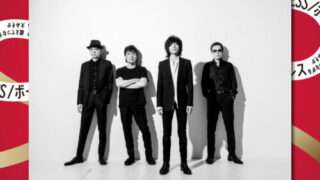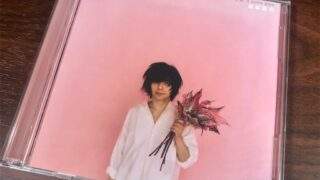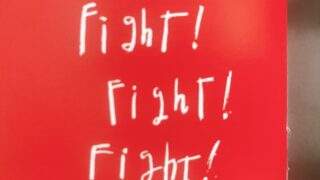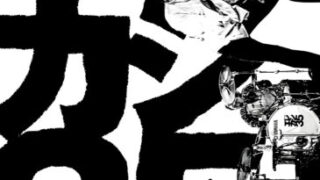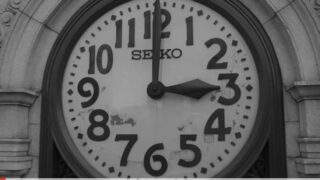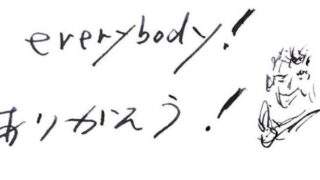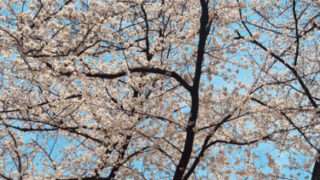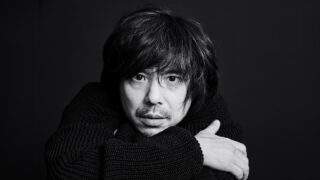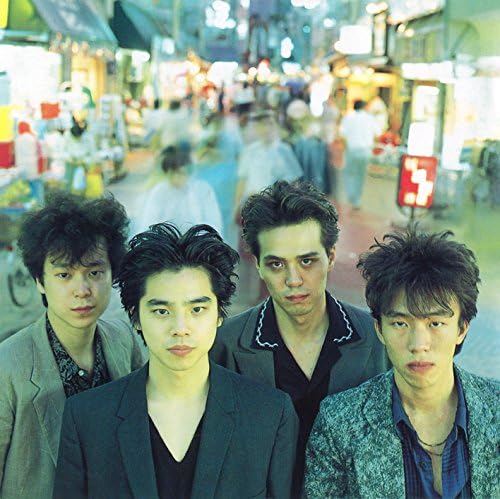Good evening. I’m Johnny, a huge fan of Elephant Kashimashi. Tonight I will introduce the 3rd Album “Ukiyo no Yume (1989)” with my comments on Elekashi songs on Twitter in the past.
“Ukiyo no yume” The Elephant Kashimashi 3rd Album introduction in English.

All right? Let’s go!!
“Ukiyo no yume” 3rd Album introduction in English.
①”Jokyoku” Yumeno Chimata (“Prelude” Dream world )
I didn’t see it coming… the 1st song of the 3rd album which went beyond my expectations. A very beautiful work depicting Japanese scenes.”Shinobazu Pond” in the lyrics is Miyaji’s favorite place. He sang this song powerfully at 2009 YAON, and his falsetto was beautiful at 2012 YAON.
②Utsura Utsura (Drowsily)
Has any rock singer ever sung about the cuteness of a sparrow? A burst of Miyamoto’s world brings melancholy & transience instantly. Landscapes vary one after another, but he finally returns to his room. That’s so Miyaji.
③Ueno no Yama (Mountain of Ueno)
“What do you like about the cherry blossom viewing?” Miyaji already seems to dislike it. But later he says “I wanna get excited a bit. Let me join the cherry blossom party.”His way to sing is ROCK, and the melody is like Enka.
④GT
GT stands for Gran Turismo (A car designed for long-distance driving). Miyaji had no car license then, so a car of someone close to Miyaji might be its model? A rare song composed by the bassist Seiji Takamidori. B-side of 4th single.
⑤Chinki Otoko (Clown man)
Miyaji said “It’ll be OK if this song is laughed at” in an interview in 1999. He plays it while sitting on Otoko-chair. That is famous in Elekashi’s concert. @ariyoshihiroiki, said on the radio “#ElephantKashimashi reminds me of Chinki Otoko”.
⑥Ukigumo Otoko
“Otoko(Man)” series 4th. “Ukigumo Otoko” means “The floating cloud man”.In the 30th anniversary interview, Miyaji seemed to really like this song and wanted to include it to the best album.Now he quit smoking for his physical condition control, but used to smoke 100 cigarettes a day, and expressed himself as “Ukigumo Otoko”.
⑦Mihatenu Yume (Unfulfilled dreams)
The prelude part is very similar to “Yasashii Kawa”. Miyaji’s habit while playing the guitar, or his favorite chord progression? This song starts gently, but becomes loud later, so be careful! Lyrics are beautiful, and he is a very poet.
⑧Tsukito aruita (I walked with the moon)
Expressiveness of this song is wonderful! The lyrics and the sound express walking people & driving people well.Miyaji says, “I walked with the moon, not with you.” He is faithful to music and writes sincere songs.
⑨Fuyuno Yoru(Winter night)
Miyaji sings “Relieving moment in daily life” with the guitar. This song is universal and touches our hearts. Close to a folk song rather than rock. Loneliness & sorrow. Wrong chord is adopted in the second verse “Fuyuno Nioito”.
【Ukiyo no yume】
Shibuya-san, a music critic, says this album is “Evolution of a drunk guy’s humming”. It reflects Miyaji’s sense strongly and doesn’t intend to make money. I wonder how it could be released at that time. However, while incorporating Japanese elements, the songs were made without lies, and are touching works even for the listeners today, 28 years later.
【⚡️Moment】
This album while incorporating Japanese elements, the songs were made without lies, and are touching works even for the listeners today, 28 years later. #ElephantKashimashi #music #JROCK #rock #japan #Japanese #lastsamurai
https://t.co/jC4dwNOi1r— ELEKASHI fan Universe (@Elekashifan_JP) 2018年6月24日
【3rd Album review again】
First, considering the 1st & 2nd album, it’s hard for me to believe the same person made the 3rd one. How did the people at that time grasp this talent?
For a listener who desires impulse and energy like the 1st & 2nd, is it unsatisfactory? What do you think? Great “Elephant Kashimashi” goes beyond the category we can understand. They must be a band of national renown, but the word “universal” is definitely more appropriate.
I got off the track. Looking back on the interview at the time, all four members had confidence in their work. If they changed only mixdown, mastering and recording methods, I think the band sound may have been transmitted more.
(まずは1stと2ndからの振れ幅を考えると、同じ人が作ったとは想えない。この才能を当時の人はどう捉えていたのだろうか?
1stや2ndの衝動や熱量を求めていたリスナーから見ると、物足りなさを感じた人がいますか?どうかな?エレファントカシマシというバンドの凄さは私たちの頭で理解できる範疇を超えている。まさしく”宇宙”という言葉が相応わしい。
話はそれたが、当時のインタビューを振り返って見ると、The Elephant Kashimashiの4人全員が自分の作品に凄く自信を持ってる。彼らがミックスダウンやマスタリングや録音方法だけを変えれば、サウンドに関してはもっと伝わったかもしれないと思う。)
Regarding songwriting, we can think of it as a concept album, can’t we? The title of the first song is “Jyokyoku; Yume no Chimata (Prelude; Dream world)“, and the theme is consistent through the whole album. I feel “My room”, “Taking a walk” and “Tokyo cityscape” from any song.
The image of “Ukiyo no Yume” in my head is “to walk in an art museum exhibitions with exquisite landscape paintings”. Listening through the album, I heard different music this time. That’s “Tenrankai no E (Pictures at an Exhibition)”.
This song was composed by Mussorgsky from the impression of ten pictures that he saw in an art gallery as a remembrance of his friend, Viktor Hartmann (Gartmann)”.
Whenever I listen to “Rekishi (History)“, it remains in my mind. I imagine an exquisite landscape painting from each song of “Ukiyo no Yume“. Miyaji’s songwriting is truly an amazing talent because it just shows a particular scenario that was cut from a memorable moment. To some extent, he makes songs “sensuously” (wow, a genius!). The members understand his talent, and express proper sound suitable for the song. This is really great. I’m glad that they are always next to him and understand him very well.
The last song of this album is “Fuyu no Sora (Winter Night)”. When I listened to it, the last phrase of “Ningen Shikkaku (No longer human)” which was written by Osamu Dazai first came up to my mind. (Refer to below)
(ソングライティングに関しては、これをコンセプトアルバムとして私たちは考えても良いのではないか?1曲目が”「序曲」夢のちまた”と題されいるし、作品全体としては(=アルバム全体を通じて)テーマが一貫してる。私は【自部屋】とか【散歩】【東京の町並み】をどの曲からも感じる。”浮世の夢”に関して自分の頭の中に浮かんだ映像は【精巧な風景画を飾っている美術館を、順序通りに歩く】だ。アルバムを通して聴くと、今回は映像でなく違う音楽も流れてきた。その曲は『展覧会の絵』だ。
ムソルグスキーが、友人であったヴィクトル・ハルトマン(ガルトマンとも)の遺作展をで歩きながら、そこで見た10枚の絵[1]の印象を音楽に仕立てたものである。 展覧会の絵 – Wikipediaより。これは”歴史”という曲を私が聴く時に、毎回それが頭に浮かぶ。”浮世の夢”の1曲1曲が精密な風景画だ。
この、瞬間を切り取る宮本浩次のソングライティングってのは本当に凄い才能。そして、ある程度、彼はそれらを”感覚的”に作れている(正に天才)。そして、その才能を理解しているメンバーは、その曲に合った相応わしい音を表現してる。本当にこれは凄い。1番理解している人が彼のすぐそばにいてよかった。そして、このアルバムの最後は”冬の夜”という曲で終わる。この曲を聴いて最初に浮かんだのが太宰治の”人間失格”の最後の一節だった(以下、引用)
いまは自分には、幸福も不幸もありません。
ただ、一さいは過ぎていきます。
自分がいままで阿鼻叫喚で生きて来たいわゆる「人間」の世界において、たった一つ、真理らしく思われたのは、それだけでした。
ただ、一さいは過ぎて行きます。
自分はことし、二十七になります。白髪がめっきりふえたので、たいていの人から、四十以上に見られます。
I guess Miyaji might get an answer in “Ukiyo no Yume” like the last message of “Ningen Shikkaku”.
(ミヤジ先生はある程度、この太宰治の”人間失格”における最後のメッセージのように、”浮世の夢”にひとつの作品として何かを置いて、世に生み出したのではないかと捉えたんだ。(以下、冬の夜の歌詞転機)
遠すぎて 星も見えず 目を下にやれば
キラキラとビルのひかり 明るくてきれい冬の匂いと 北風のなか
固い地面 枯葉踏んで 家についたかじかんだ 手足の休む 部屋は暖かで
暗い部屋 電気をつけた 明るくなった風呂の中 口笛吹いた 誰かの歌よ
冬の匂いと 北風のなか
固い地面 枯葉踏んで 家についた
These lyrics are completely different sentences from Dazai’s, but I feel like Miyaji said the same thing as Dazai. They both depicted that “time passes without doing anything.”
Although I don’t know the truth, I think “Ukiyo no Yume” is the most artistic work in the history of “The Elephant Kashimashi” because four members expressed songs, which precisely cut out the daily life of Hiroji Miyamoto at that time, as much as they can.
It is not merely a ROCK album. It is the best album to immortalize ROCK songs in Japanese, and there is no frontman/band that can make music like this. Currently, I feel there are a few artists whose albums are really superior as an artistic work in Japanese ROCK music.
The number of hit songs that are easily forgotten by people is increasing, while handed-down music is decreasing.
Long ago, “Kojiki (Records of Ancient Matters)” and “Manyoshu (Collection of Ten Thousand Leaves)” were conveyed orally in Japan, and have been passed on to generations after generations up to the present day. If a recorder, a precision instrument, a CD, a PC, all of the data, and everything disappear, quite simple songs only may remain.
Well… anyway, why don’t you listen to this album? (Lol)
(これ全く違う文章だが、私にはミヤジが太宰と同じこと言ってるように感じる。どちらの文も、何もせずとも「時間が経過する」ことを表している。真実は分からないが、この”浮世の夢”って作品は、当時の宮本浩次の日常の風景を精密に切り取った楽曲を、4人で表現できるところまでやりつくして、見事に形になったエレカシ史上、最も芸術性の高い作品だと想う。
単なる、ロックのアルバムでなく、これは日本語でのロックにおける表現としては最高峰であるし、これを今作れるフロントマンも、バンドも居ない。現在、日本の芸術的なロック音楽の作品として、1枚1枚がそうゆう意味で本当に優れているバンドや、アーティストは少ないように感じる。消費される音楽が増え、語り継がれる音楽が減っている。大昔、日本では口承で古事記や万葉集が伝えられ、現代まで伝承されてきた。レコーダーや精密機械や、CDやパソコン、データも全部、全部、無くなった後に残るのは、本当はものすごくシンプルなものなのかもしれない。まあ…とりあえず、これを聴いたことない人は聴いてみて?(笑))
Johnny
P.S.
意識消失するくらい大変な翻訳でした。自分で文を作っておいて、英語化するときに難解な日本語すぎて大幅に変更。チームメンバーに見せたら、ジョニの日本語難しすぎて表現しずらいと…英語の方が解釈するほうは簡単なのかなあ。日本人特有のあれこれ深く思考するクセが出た。
次は4thアルバム。一番重要で一番解説しづらいアルバム。
エレカシを世界へ!この想いだけで続けた1年間。これですね、50年先見越して残してます。この英語の翻訳。今はきっと、誰も見ないよ!そりゃわかってる。わかってるさ!でも、意味ないと言われようがいいんだ。これが世界的に注目されるときは、オレ死んでるかもしらん。ゴッホみたいに死んでから価値が出るみたいなね?ただね、何がきっかけになるか解らんよ? この世に、無駄なものなんてないから! チームの皆さん、いつもフォローありがとうございます。いままでも、これからも…来年も、再来年も。

